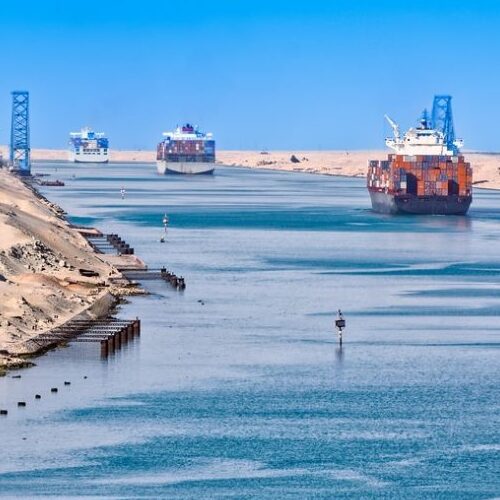No other nation in the world says ‘Welcome’ as often as the Egyptians, and every time, they mean it. While the ancient civilization of Egypt continues to amaze, contemporary Egyptians are equally remarkable.
History Modernity
Suez Canal: A Journey Through Time
The Suez Canal, a marvel of human engineering and a pivotal artery in global trade, has a rich history that dates back thousands of years, profoundly shaping the region of Suez and the world.
Early Conception and Pharaonic Times
- Ancient Initiatives: The concept of a canal connecting the Mediterranean and the Red Sea originated in ancient Egypt, with the earliest endeavors traced back to the Pharaohs’ era, extending through the Islamic era to its current form.
- Pharaonic Contributions: The first known canal in the region, linking the Nile to the Red Sea, was initiated during the reign of Senausret III (1887-1849 BC). This waterway was subject to frequent silting and underwent numerous restorations by subsequent rulers like Sity I, Necho II, Darius, Ptolemy II, Trajan, and Amro Ibn Elass.
- Necho II’s Effort: Under Pharaoh Necho II, the canal was constructed, albeit with significant loss of life. However, its strategic importance was recognized, despite periods of neglect and disrepair.
Greco-Roman Era and Beyond
- Darius I’s Extension: Persian ruler Darius I significantly extended the canal during his reign, leaving behind inscriptions commemorating this achievement. Ptolemy II and Roman Emperor Trajan also contributed to the canal’s development.
- Islamic Influence: The canal was revitalized following the Islamic conquest under Amro Ibn Elass, serving vital trade and pilgrimage routes. It was ultimately closed in 767 AD by Abbasid Caliph El-Mansur.
Modern Times and Global Impact
- Napoleon’s Ambition: The modern concept of the Suez Canal was first envisioned during Napoleon Bonaparte’s Egypt expedition. Early misjudgments about sea level differences led to temporary abandonment of the project.
- Ferdinand de Lesseps and Construction: In the mid-19th century, French diplomat and engineer Ferdinand de Lesseps played a pivotal role in reviving the canal project. The Suez Canal Company was established in 1858, marking the beginning of the canal’s modern construction.
- Inauguration and Challenges: The Suez Canal was officially opened in 1869, transforming global trade routes. Despite initial financial difficulties and political opposition, the canal became a crucial link between the Mediterranean and the Red Sea.
The Canal in Contemporary History
- Nationalization and Conflicts: The canal experienced closures during the tripartite invasion in 1956 and the 1967 War with Israel. Its nationalization by President Gamal Abdel Nasser in 1956 was a landmark event, asserting Egypt’s sovereignty over this strategic waterway.
- A Symbol of Egyptian Pride: Today, the Suez Canal is entirely managed by Egypt, representing a significant achievement in the country’s modern history and a vital component of global maritime trade.
The Suez Canal’s history is a narrative of human ambition, political maneuvering, and technological triumph. From ancient pharaohs to modern leaders, the canal has been a stage for some of history’s most significant events, forever altering the landscape of global trade and geopolitics.
Created On March 18, 2020
Updated On Aug , 2024
SUEZ Travel Guide



